
U.S. Secretary of State Reveals Potential Successor to President Donald Trump
U.S. Secretary of State Marco Rubio has named the next potential Republican candidate who could succeed President Donald Trump and become the next occupant of the White House.
In an interview with Fox News on October 6, the host mentioned that, according to several sources, President Donald Trump had identified Secretary of State Marco Rubio as a possible successor to lead his “Make America Great Again” (MAGA) movement.

When asked whether he would consider running for president in 2028 if endorsed by President Trump, Secretary Rubio said that another person would likely take the lead of the MAGA movement.
“I believe the next Republican nominee will be Vice President Vance if he decides to run. He’s a good friend of mine and he’s doing an excellent job,” Rubio said.
The Secretary of State added that they have “a fantastic team,” and everyone is working in service of the president.
During the interview, the host noted that, according to some reports, Secretary Rubio is mainly responsible for foreign policy. However, he also possesses deep expertise and advisory skills in domestic matters. Secretary Rubio then clarified the distinction between his role and that of President Trump.

“Sometimes people confuse our jobs with the president’s. Our duty is to carry out the president’s agenda. Can we offer advice? Yes. Can we bring ideas? Absolutely. But ultimately, the president is the one elected by the American people,” Rubio concluded.
Back in August, President Trump stated that it was still too early to choose his successor as the Republican Party’s presidential nominee for the 2028 election. However, he did acknowledge that Vice President J.D. Vance was the “most likely successor.”
“It’s still too early to talk about that, but he’s certainly doing a great job — and maybe he’ll have my support when the time comes,” Trump said of his deputy.
President Trump also left open the possibility that Secretary of State Marco Rubio could be Vice President Vance’s running mate. Rubio currently serves as both U.S. Secretary of State and acting national security adviser to the president.
The 22nd Amendment to the U.S. Constitution limits any individual to being elected president for only two terms.
In August, President Trump said he “probably would not” run for a third term after completing his second.
Speculation about a potential third-term run intensified when the Trump Organization — run by his two sons — began selling red hats emblazoned with “Trump 2028.”
However, Trump clarified his position:
“Many people are selling those 2028 hats, but that’s not something I plan to do… I want to have four great years, then hand it over to someone — ideally an outstanding member of the Republican Party — to carry the effort forward.”
For his part, Vice President Vance said that President Trump has asked him to stay focused on the administration’s current work when questioned about discussions regarding his potential candidacy as the Republican nominee in 2028.
When asked if he saw himself as the heir to the MAGA movement, Vance responded:
“No. I see myself as a vice president trying to do a good job for the American people. If I do my job well, and if the president continues to succeed, politics will take care of itself. We’ll deal with that when the time comes,” Vance said.
He added that the 2026 midterm elections will be the next major contest of significance for the American people before the 2028 presidential race.

![]()
Here are the top GOP contenders to succeed Trump for president in 2028
President Trump is dominating the political stage for now. But attention will shift soon enough toward the 2028 race.
Trump has at times entertained the idea of seeking a third term — a notion encouraged by some of the most combative voices in MAGA World such as Steve Bannon.
The near-universal expert view is that such a quest would be flagrantly unconstitutional. Trump would also be 82 by Election Day 2028.
Assuming Trump indeed exits the White House for a final time at the end of his second term, the battle to succeed him will be fierce.

Tomorrow, The Hill will publish similar rankings for Democrats in 2028. For now, here’s where the Republican field stands.
1. Vice President Vance
Vice President Vance is the most obvious inheritor of Trump’s mantle.
Part of the reason is simple: He is the much-younger vice president to an incumbent president.

But there are more Vance-specific factors as well.
The vice president has long ago abandoned the criticisms of Trump that he once leveled. Despite the vigor of those critiques — he mulled to a friend in 2016 whether Trump could end up being “America’s Hitler” — he appears to have been forgiven by the MAGA base.
Vance is helped in connecting with Trump’s working-class supporters by his famously difficult upbringing, as memorialized in his book “Hillbilly Elegy.”
The vice president also shares Trump’s isolationist instincts on foreign policy — a tendency most obviously seen when the duo berated Ukrainian President Volodymyr Zelensky in the Oval Office earlier this year.
Vance is often combative with the media but he has not made many enemies within the Trump-era GOP. Figures like Defense Secretary Pete Hegseth, Health Secretary Robert F. Kennedy Jr. and FBI Director Kash Patel are all much more controversial within the party.
There are still question marks over some of Vance’s political instincts. During last year’s campaign, a 2021 jibe about “childless cat ladies” came back to haunt him.
But for now, there’s no real doubt that Vance is the Republican front-runner to succeed Trump.
2. Donald Trump Jr.
Donald Trump Jr.’s lofty position on this list is rooted less in his political skills — which are unproven, at best — than in the plausible possibility he would benefit from his father’s hold over the party.
The elder Trump has been able to survive numerous furors — two impeachments, Jan. 6 and felony convictions on 34 counts — because he inspires such fervent personal loyalty from his base.
The question is whether the father’s supporters would transfer their allegiance to his eldest son.

The younger Trump for now mostly confines himself to aggressive social media posts, an equally fiery podcast called “Triggered” and tending to his business interests.
One doubt around the younger Trump is whether he would bring the same negatives as his father — both men are widely loathed by liberals — without the same positives with the GOP base.
Still, a second Trump candidacy would automatically have to be taken seriously.
3. Sen. Tom Cotton (Ark.)
Sen. Tom Cotton’s decision to take a pass on the 2024 race for the GOP nomination looks wise in retrospect.

Trump would almost certainly have been the victor whomever he ran against — and Cotton’s image with the MAGA faithful has not been besmirched by any perceived disloyalty.
Cotton, an Army veteran who served in Iraq and Afghanistan, has a sure touch for the kind of political positioning that has a visceral appeal for many Republican voters.
One recent example is his insistence that former special counsel Jack Smith should be investigated for — in Cotton’s view — improperly seeking to influence the 2024 election by his criminal probes of Trump. Smith, through his lawyers, has emphatically denied this.
Cotton is a strong speaker and media performer, with a more hawkish view of foreign affairs than Vance.
He would be an immediate top-tier contender if he runs in 2028.
4. Sen. Ted Cruz (Texas)
The 2016 GOP primary seems a very, very long time ago. But back then, Sen. Ted Cruz was by far Trump’s most serious rival for the GOP nomination.
The 2016 campaign was also a bitter one, with Trump making bizarre allegations against Cruz’s father and wife, and the Texas senator hitting back in kind.
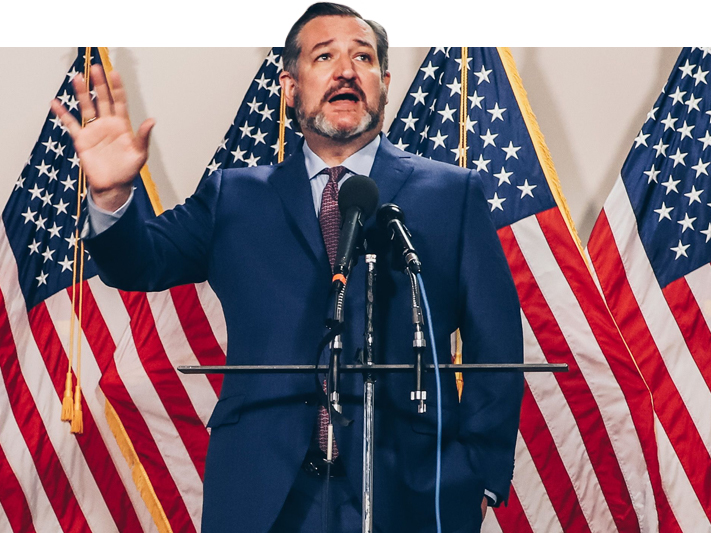
Cruz called Trump a “pathological liar” and famously declined to endorse him at that year’s Republican National Convention.
Cruz has positioned himself in a far more Trump-friendly way since then, and he is one of the best-known Republicans nationwide.
There’s no doubt about the Texas senator’s fervent conservatism, on cultural and economic issues alike.
The bigger question is whether he is too distrusted in some MAGA quarters to win.
5. Secretary of State Marco Rubio
Marco Rubio suffers from some of the same problems as Cruz, though his current position at the heart of the Trump administration could help him.
Rubio, like Cruz, ran against Trump in 2016 and threw plenty of verbal barbs the president’s way. Trump derided his then-rival as “Lil’ Marco.”
Now, Rubio is a frequent presence on television fiercely defending Trump’s foreign policy approach.
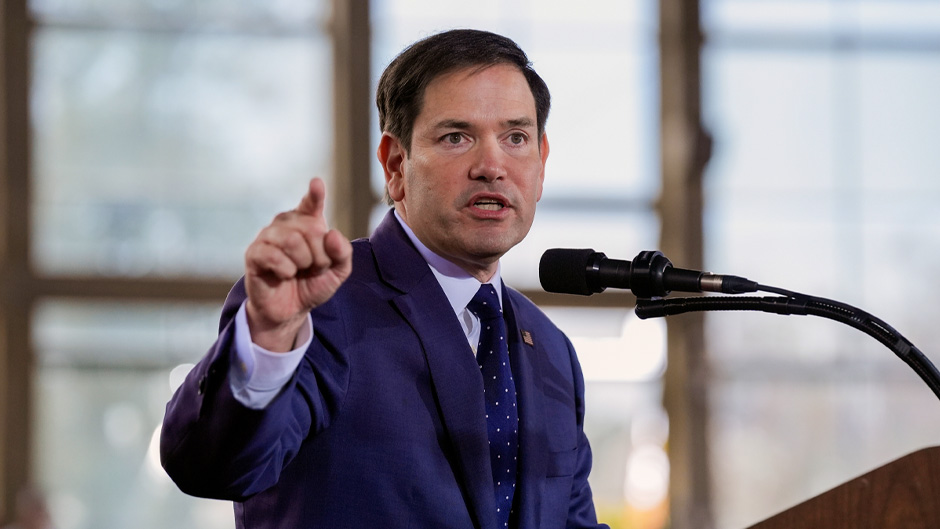
Yet Rubio is also capable, at least to some degree, of bridging the gap between the “America First” isolationism of the MAGA movement and the more old-style hawkish Republicanism he previously embraced.
Still, there is often a sense that Rubio has never quite lived up to his promise.
First elected as a senator representing Florida 15 years ago, a 2013 Time magazine cover billed Rubio as “The Republican Savior.”
Republican voters have never quite agreed.
6. Florida Gov. Ron DeSantis
Gov. Ron DeSantis has helped rehabilitate himself with voters loyal to Trump in recent months by his championing of Alligator Alcatraz, the highly controversial immigration detention facility in Florida’s Everglades.
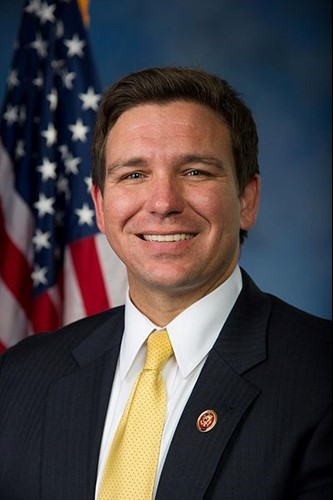
Trump visited the facility during the summer, but it’s actually run by the state of Florida — and thus, ultimately, by DeSantis.
A judge has ordered the facility closed amid a case that DeSantis has fiercely contested. The governor also announced earlier this month that his state will open a second facility, which he has christened “Deportation Depot.”
It’s the kind of move that saw DeSantis emerge as Trump’s most serious rival in the 2024 nomination process.
But in the end, that campaign was very underwhelming — and clearly hurt DeSantis’s standing and future ambitions.
7. Sen. Josh Hawley (Mo.)
Sen. Josh Hawley could pull a surprise in the 2028 race, if he were to run.

Besides Trump himself, he is the Republican who courts working-class support more ostentatiously than any other.
Hawley is a vigorous critic of stock trading by members of Congress, for example, and he made an unlikely alliance with Sen. Bernie Sanders (I-Vt.) to try to cap interest rates on credit cards.
He is also more pro-labor than most Republicans, a stance reflected in moves like him pushing a bill that would have pressed employers not to use delaying tactics when negotiating union contracts.
Critics on the left see Hawley’s efforts as a pose, especially given his staunch social conservatism. He is also regarded with some suspicion by some members of his own party.
But a Hawley bid is one of the more intriguing possibilities for 2028.
8. Rep. Marjorie Taylor Greene (Ga.)
Rep. Marjorie Taylor Greene would be the most controversial possible choice by the GOP — a title for which there is stiff competition.
The Georgia congresswoman has been an inflammatory figure in American politics since she first won her seat in 2020. She has tangled with numerous Democrats, once getting into a particularly heated contretemps with Rep. Alexandria Ocasio-Cortez (D-N.Y.) just off the House floor.
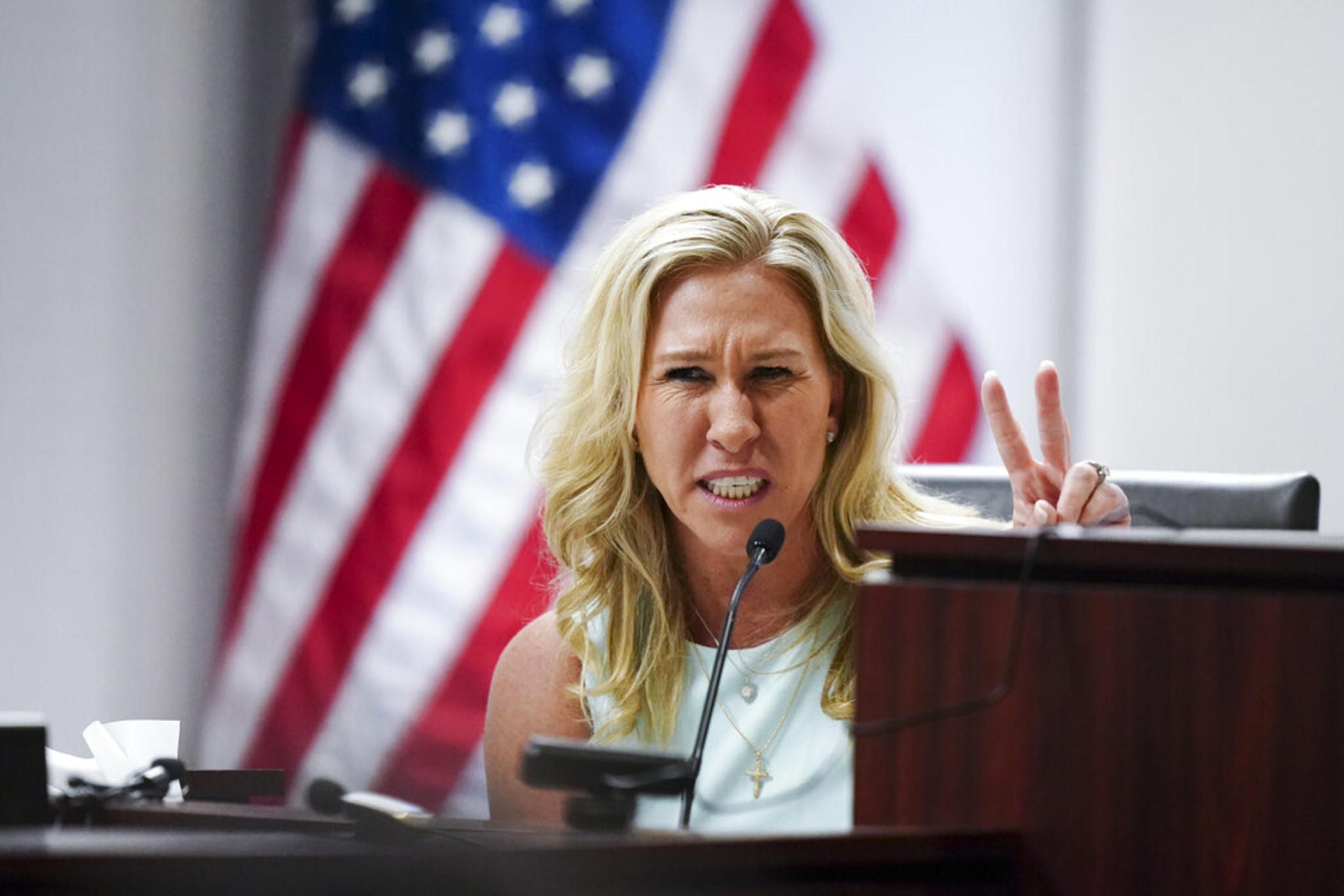
But Greene has also mixed it up with fellow Republicans like Rep. Lauren Boebert (Colo.) and MAGA influencers like Laura Loomer.
Greene, intriguingly, has been to the fore among the GOP in expressing opposition to Israeli actions in Gaza. In July, she became the first Republican member of Congress to call those deeds a “genocide.”
The following month, she caused another stir by accusing her own party of having “turned its back on America First, and the workers and just regular Americans.”
Is she electable nationally? Many people would say no, and it would be a huge gamble on the GOP’s part to even consider nominating her.
9. Sen. Tim Scott (S.C.)

Sen. Tim Scott, a famously affable presence even in an increasingly acrimonious Senate, is well regarded by Trump, and by virtually every faction in today’s GOP.
He’s also the sole Black Republican senator, a status that could perhaps help the GOP make further inroads with Black voters if he were to somehow make it to the nomination.
Scott never really got traction as a 2020 candidate, however; and there’s no obvious reason to believe he would vault past the people higher up this list in 2028.
![]()
U.S. Government Shuts Down as Trump Urges Democrats to “Act Before Negotiating”
President Donald Trump on October 6 called on Democrats to “immediately reopen the government,” emphasizing that he would only be willing to discuss extending healthcare tax credits once Democrats agree to the Republican-proposed funding bill.
In a post on Truth Social that same day, Trump appeared to strike a sharper tone than in previous, more conciliatory remarks, where he had left open the possibility of a bipartisan deal on healthcare — the central issue at the heart of the standoff that has led to the federal government shutdown.
“The Democrats have shut down the United States government during one of the most successful economic periods in our country’s history, including record highs in the stock market. That’s a shame, because it affects countless programs and services that Americans rely on. It should never have happened,” Trump wrote.
“I am willing to work with Democrats on their failed healthcare policies, or on any other issue. But first, they must reopen our government. In fact, they should do it tonight!” he stressed.
Earlier, speaking from the Oval Office, Trump had expressed hope for a bipartisan agreement: “We’re negotiating with the Democrats and could reach some very good things… especially in the field of healthcare,” he said, though he declined to confirm whether he had met with Democratic leaders.
When asked if he would support an extension of subsidies under the Affordable Care Act (ACA) — which Democrats view as a prerequisite for any budget deal — Trump responded: “If we get the right deal, I’ll agree. Absolutely.”
However, the president also criticized Obamacare — the 2010 healthcare reform law signed by President Barack Obama — calling it “costly and inefficient.”
“The subsidies are too large, billions of dollars are being wasted. We can absolutely build a much better healthcare system than the one we have now,” Trump added, while cautioning that “nothing is guaranteed.”
Democratic leaders swiftly rejected Trump’s claims about ongoing negotiations. House Minority Leader Hakeem Jeffries stated, “I’m not aware of any Democratic member who has spoken with President Trump or his administration about reopening the government, reaching a bipartisan spending deal, or addressing the Republicans’ healthcare crisis.”
In the Senate, Minority Leader Chuck Schumer echoed that sentiment, saying there were “no such negotiations,” but left the door open: “What the president said isn’t true, but if he’s truly willing to work with us, Democrats will be ready to come to the table.”
The U.S. government officially shut down on October 1 after the two parties in the Senate failed to reach a budget agreement. Democrats have demanded an extension of the enhanced tax credits under the ACA — set to expire at the end of the year — to help millions of Americans afford health insurance. According to health policy group KFF, if those credits expire, ACA premiums could rise by more than 75 percent on average.
While Democrats insist the extension should be included in any short-term funding package, Republicans argue that healthcare subsidy talks can wait until year’s end and should remain separate from government funding discussions.















:max_bytes(150000):strip_icc():focal(999x0:1001x2)/service-dog-2-102425-43702a5f81ae48d98281a2ca32c6da12.jpg?w=1200&resize=1200,0&ssl=1)








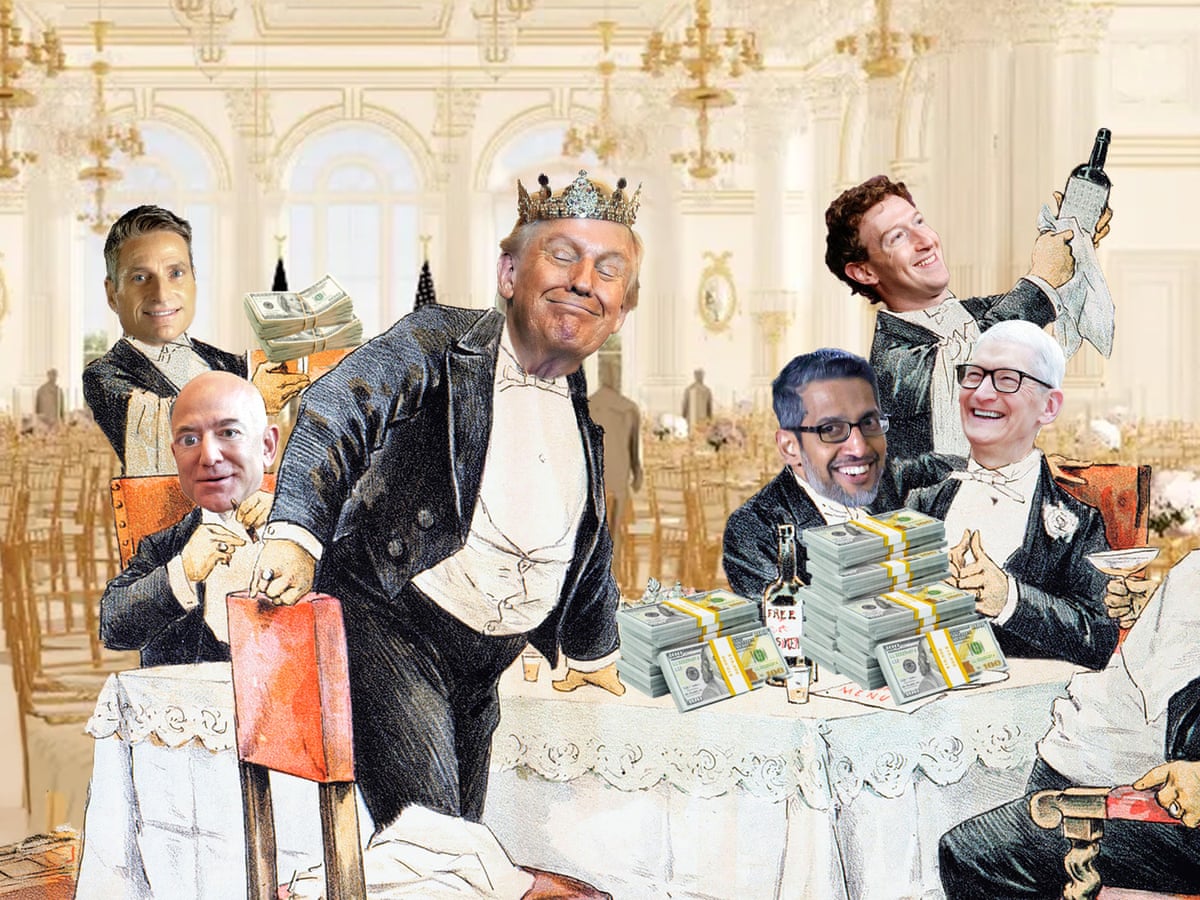





:max_bytes(150000):strip_icc():focal(750x347:752x349)/Nikki-Bahan-family-020326-4-edc823666828480cb5eb6b593cdc677a.jpg?w=1200&resize=1200,0&ssl=1)





:max_bytes(150000):strip_icc():focal(999x0:1001x2)/kelly-f8f4a408edbb4de585c0bd6fede3919f.jpg?w=1200&resize=1200,0&ssl=1)



:max_bytes(150000):strip_icc():focal(749x0:751x2)/catherine-ohara-home-alone-013125-efe8e1830a1849c582acd23b199ec16b.jpg?w=1200&resize=1200,0&ssl=1)
